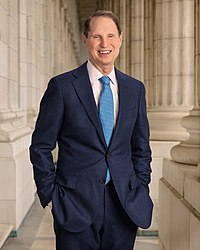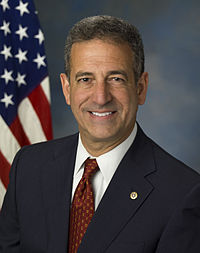Libertarian Democrat
In 2013, well over half the House Democrats (111 of 194) voted to defund the NSA's telephone phone surveillance program.
The resulting stance on gun control brought in libertarian minded voters, influencing other beliefs.
In the 2010s, following the revelations by Edward Snowden about NSA surveillance in 2013, the increasing advent of online decentralization and cryptocurrencies like Bitcoin, the perceived failure of the war on drugs and the police violence in places like Ferguson, Democratic lawmakers such as Senators Ron Wyden, Kirsten Gillibrand and Cory Booker and Representative Jared Polis have worked alongside libertarian Republicans like Senator Rand Paul and Representative Justin Amash to curb what is seen as government overreach in each of these areas, earning plaudits from such traditional libertarian sources as Reason magazine.
[3][4][5][6] The growing political power of Silicon Valley, a longtime Democratic stronghold that is friendly to economic deregulation and strong civil liberties protections while maintaining traditionally liberal views on social issues, has also seriously affected the increasingly libertarian leanings of young Democrats.
[10][11] This constituency arguably embraced the 2016 and 2020 presidential campaigns of independent Democrat Bernie Sanders for the same reasons.




